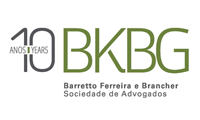Lawyering with connectivity – efficiency – mobility
Ricardo Barretto Ferreira da Silva*
Law firms with a high reputation for their use of modern management methodologies are in the forefront of the pioneering innovations involving work in a mobile environment.
The management of such firms are trying hard to keep up to date with and monitor the advancement of technology, enabling high voice, data and image connectivity levels.
These firms are looking forward, maintaining a high level of efficiency in the practice of law and, at the same time, equating work/quality of life/well-being.
They are also aware of the growing traffic problems and security issues in large cities such as São Paulo and Rio de Janeiro.
Most of these law firms are involved in social responsibility projects, and are continuously contributing towards the improvement of the environment.
Working in a highly digitised environment, without the use of paper, is the right move towards a greener business and should be the target of all law firms today.
Clients are indicating that they prefer to work with a law firm that has created its own quality policy regulations, especially those that have a quality management system certified by the ISO 9001:2008 standard.
The use of mobile technology by the few existing fully digitised law firms is enabling these firms to regulate their home office projects and allowing their attorneys to work remotely.
A pioneer and innovative model in Brazil and worldwide has been implemented by a law firm in Brazil1, with the following characteristics:
Each attorney expressed his/her preference about the number of hours of work that he/she intended to spend on the law firm premises (onsite), compared to the number of hours of work that he/she intended to do remotely (off-site), in relation to working days and taking into consideration the attorney’s hierarchical position in his/her respective team, the work system of his/her team, the need to ensure efficiency and quality in the performance of individual work and teamwork, always preserving the principles of the firm’s quality policy and other applicable rules.
Management examined the preferences, discussed them with the stakeholders and designed an operational structure that sought to meet individual aspirations and the objectives of the law firm. The implemented structure needs to be constantly monitored and, considering its innovative nature, should be viewed as dynamic and subject to change at any time.
The attorneys always had at their disposal on the law firm premises the necessary structure, compatible with the working methodology proposed by the professional and accepted by the law firm within the context of the overall operational structure defined by the firm.
Management made available for use to all attorneys: (i) mobile workstations; (ii) corporate mobile telephones; (iii) remote access to its fully digitised database; and (iv) virtual meeting rooms with the capacity for 25 participants each, which are also accessible remotely.
The extension for direct access to the professional (voicemail), instead of being fixed in a workstation, was transferred to the corporate mobile cellular telephone, increasing the availability of the legal team both internally and to the client.
The firm upgraded its entire network infrastructure and servers, and its e-mail program was outsourced and now operates on a server in the cloud.
Management decided to depersonalise the attorney rooms, from the highest partner level, whereby the entire work environment is now sharable among the law professionals, comprising rooms for individual and collective use.
The firm has a virtual library with remote access.
The internal architecture of the firm was adapted to the mobile project, increasing its efficiency through the adoption of a modern corporate space model in which personalised rooms and workstations no longer exist.
Another important aspect is that there was no change in the attorney financial compensation system as a result of the implementation of the mobile project.
Attorneys are required to be personally present in the event of meetings at the law firm or with their client, or in relation to procedures of a judicial or administrative nature which may call for in-person work.
The entire administrative and attorney support teams, including law clerks and paralegals, continue operating personally on the firm’s premises, ensuring the efficiency of the operating platform (hub).
The operating model was modernised and a modern and cutting-edge corporate space was created, defining the firm’s shape of growth going forward.
The mobile model of operation brings substantial benefits including, but not limited to:
-
savings on office space rental;
-
a better quality and balance of life/work for attorneys;
-
elimination of the time wasted in traffic;
-
improvement of the environment; and
-
a reduction in the firm’s operating costs at a time when clients’ demands upon law firms are for the delivery of more cost-efficient and higher quality legal services.
The mobile model of operation is proving to be a competitive advantage for recruiting and retaining talented professionals seeking flexible and remote types of work.
____________
 *Ricardo Barretto Ferreira da Silva is senior partner at Barretto Ferreira, Kujawski e Brancher - Sociedade de Advogados
*Ricardo Barretto Ferreira da Silva is senior partner at Barretto Ferreira, Kujawski e Brancher - Sociedade de Advogados
1Brazilian Law Firm, based in São Paulo City, Brazil, at Rua Dr Eduardo de Souza Aranha, 387, 15th floor, Juscelino Plaza Tower, CEP 04543-121.